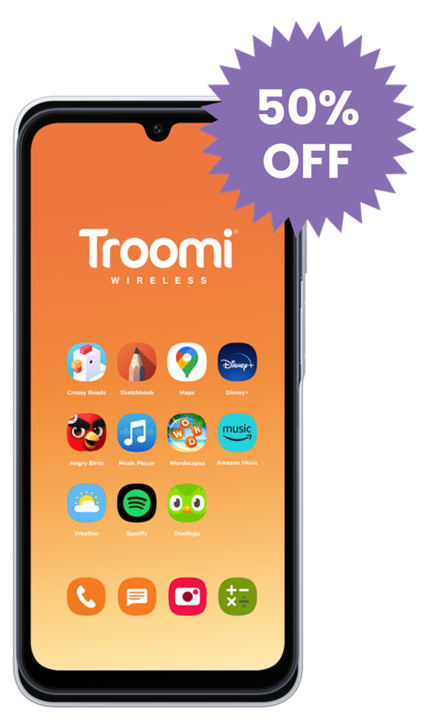They say that hindsight’s 20/20. But that saying takes on new meaning as we consider the lessons learned from the year 2020. For example, looking back, I’ve witnessed some gaping holes in how teenagers—both in my living room and my classroom—deal with personal interaction.
Before the forced isolation of the 2020 pandemic, I wondered if many of our teenagers were becoming more accustomed to life in the virtual world than the real one; if knowing how to navigate real-life interactions was taking a back seat to surfing the web, scrolling through social media, and communicating via text, sometimes without even using complete words.
But I don’t wonder anymore. Now I’m certain.
What began as an observation on the impact of tech on our kids has morphed into a concern about their ability to function in real-world settings. After watching my children and my students struggle to get out of their post-pandemic virtual reality, I’m convinced that, as parents, we need to teach our teenagers the art of personal interaction so they can feel socially savvy in any in-person situation.
Common Sense
Surprisingly, some of the soft social skills adults take for granted are lost on our tech-savvy kids. They know how to navigate social interactions online. Take, for example, their mastery of sending texts and sliding into DMs. Teenagers wrote those rules. But for these same kids, face-to-face contact can be more challenging. They struggle to engage in small talk with others, especially adults. They shy away from making phone calls to businesses or acquaintances. And they sometimes miss non-verbal cues in large groups.
But we don’t have to be alarmed. There is nothing wrong with our teenagers. In most cases, they just need some direction. And with a few common sense tips, we can help them interact and communicate clearly with others IRL (translation: in real life).
A Conversation with Some Direction
I recently chatted with Brooke Romney, author of I Like Me Anyway, about the need to teach our teenagers these important soft social skills. According to Romney, not only are these skills important to strengthen our kids’ confidence, but “kids that have these skills end up on top.” In other words, kids who know how to navigate personal interactions are generally more successful.
Romney posts some of these common sense tips on her Instagram page @brookeromneywrites. She shares tips about everything from personal hygiene to interacting with adults. She discusses proper phone etiquette and how to behave in restaurants. She tries to address many of the issues everyone, teenagers included, should recognize and master in social interactions.
Here are her top seven common sense tips for helping teenagers strengthen their personal interaction acumen, in her own words.
- If you find yourself with people you don’t know, introduce yourself. Yes, it feels awkward at first. You might need some practice. Try this: “I don’t think I’ve met you yet. I’m Jane. What’s your name?” This is a skill you will use forever.
- If food is being prepared or a room is being cleaned, ask what you can do to help. Even better, pitch in and fill a need. A few minutes of effort goes a long way.
- When someone gives you a ride, acknowledge them. They are doing you a big favor, so … say hello. Engage in conversation. Be kind to everyone in the car. Don’t whisper. Don’t jump directly on your phone. Always say thank you when you leave.
- When someone asks what you like to do or what you are into, have an answer. There is no “right answer” to this question. “I don’t know” or “nothing” is the wrong answer. You don’t have to be awesome at something to be into it. You don’t have to be on a team or in a club to have a hobby. What you love doesn’t have to be loved by everyone else. If you don’t know what you would say, take some time to think about it. If no answer comes, start doing more things.
- Don’t leave just one person out. Inviting everyone but one is just cruel. Be someone who includes. Make room. If you have a problem with someone, tell them. Don’t just ghost them. Put yourself in their shoes. Chances are, you will be. There is almost always room for one more.
- Respect people’s homes. Ask about their shoe policy. Never put your feet on furniture. Don’t lay on decorative pillows. Ask permission before eating. Keep food and drink in kitchen areas. If you mess it up, clean it up. Keep your volume at an appropriate level. If you break something, replace it.
- When walking up to a group of people, acknowledge everyone there, not just one person. Say hello to everyone. Don’t just insert yourself and block others who were already there or pull one or two people away. If you don’t know everyone, introduce yourself.
Romney is so passionate about this topic that she’s gathered some great tips together in one place. With each tip, she offers real-life scenarios as discussion starters with your kids. If you’re a parent looking for some ideas to help your teenager improve their personal interaction skills, 52 Modern Manners for Today’s Teens is a great resource to start the conversation.
Just a Little Help
In many ways, our kids just need a little help. Because they’ve grown up in a tech-centric world, skills that seem innate to us are sometimes lost on them. Fortunately, we can help them navigate the ins and outs of verbal and non-verbal communication. It just takes some deliberate effort on our part.
Sit down with your kids and talk about social etiquette and expectations. Give them opportunities to practice, like making appointments over the phone or initiating conversations with adults. Encourage them to address concerns with teachers face to face or keep others’ names sacred in conversations with friends. Really, just talk to them. Help them understand the importance of quality personal interaction.
Looking Forward
If 2020 has taught me anything, it’s that I want my teenage kids to be confident with whatever the future holds. I know they have this tech thing down. But if I can teach them the soft social skills of personal interaction, I know they can be socially savvy now and into the future.


